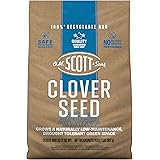Best Choice Products 48x24x30in Galvanized Raised Garden Bed, Metal Elevated Planter Box, Vegetable Garden for Backyard, Patio, Balcony - Sage Green
10% OffDIIYIV Galvanized Raised Garden Bed with Legs,2PCS 48×18×30in Elevated Planter Box for Backyard,Outdoor Garden, Patio, Balcony, 300lb Capacity,Sliver
18% OffComposting is a simple and effective way to reduce food waste while creating nutrient-rich fertilizer for your garden. It’s an eco-friendly process that not only helps you save money on groceries but also reduces greenhouse gas emissions by diverting organic matter from landfills. In this article, we will explore the basics of composting, how to start a compost pile, tips for adding the right ingredients to your compost pile, and using compost as fertilizer in your garden.
The Basics of Composting: What You Need to Know
Composting involves collecting organic materials such as vegetable scraps, fruit peels, coffee grounds, eggshells, and leaves, and placing them in a designated area where they can decompose naturally. To get started with composting, you need three essential elements: carbon, nitrogen, and water. Carbon provides energy for microorganisms to break down the material, while nitrogen supplies protein and other important nutrients. Water is necessary to keep everything moist so that bacteria can thrive.
How to Start a Compost Pile and Keep it Healthy
To begin composting, choose a location that receives sunlight and has good drainage. You can use a premade bin or create one yourself using chicken wire or pallets. Once you have your container, add a mix of brown (carbon) and green (nitrogen) materials to the bottom of the pile. This will help jumpstart the decomposition process. Next, turn the pile regularly to aerate it and ensure even decomposition. A healthy compost pile should be warm and smell earthy. If it starts to smell sour, add more browns or turn the pile more frequently.

Tips for Adding the Right Ingredients to Your Compost Pile
When adding materials to your compost pile, consider the ratio of carbon to nitrogen. Ideally, you want a balance between the two. For example, if you add too much nitrogen, your pile may become slimy and attract flies. On the other hand, if you add too much carbon, your pile may not heat up enough to kill off pathogens. Some great sources of carbon include shredded paper, cardboard, and sawdust. Nitrogen-rich materials include fresh grass clippings, manure, and kitchen scraps. You can also add soil to your pile to introduce beneficial microbes.
Using Compost as Fertilizer in Your Garden
Once your compost has fully decomposed, you can use it as a natural fertilizer in your garden. Simply spread a layer over your plants or work it into the soil before planting. Compost contains all sorts of nutrients that plants love, including potassium, phosphorus, and calcium. It also improves soil structure and promotes healthy root growth. Plus, because it’s made from organic matter, it won’t harm the environment like synthetic fertilizers can.
In conclusion, composting is a fun and rewarding hobby that benefits both the planet and your garden. By following these basic steps, you can easily start turning food waste into rich, nutritious fertilizer today!















































